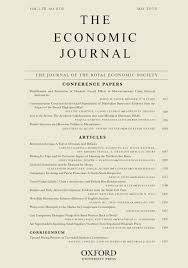
Kriwoluzky, A. and Stoltenberg, C. (2015). Monetary policy and the transaction role of money in the US Economic Journal, 125(587):1452--1473.
-
Affiliated author
-
Publication year2015
-
JournalEconomic Journal
The declining importance of money in transactions can explain the well-known fact that U.S. interest rate policy was passive in the pre-Volcker period and active after 1982. We generalise a standard cashless New Keynesian model (Woodford2003) by incorporating an explicit transaction role for money. In the pre-Volcker period, we estimate that money did play an important role and determinacy required a passive interest rate policy. However, after 1982, money no longer played an important role in facilitating transactions. Correspondingly, the conventional view prevails and an active policy ensured equilibrium determinacy.